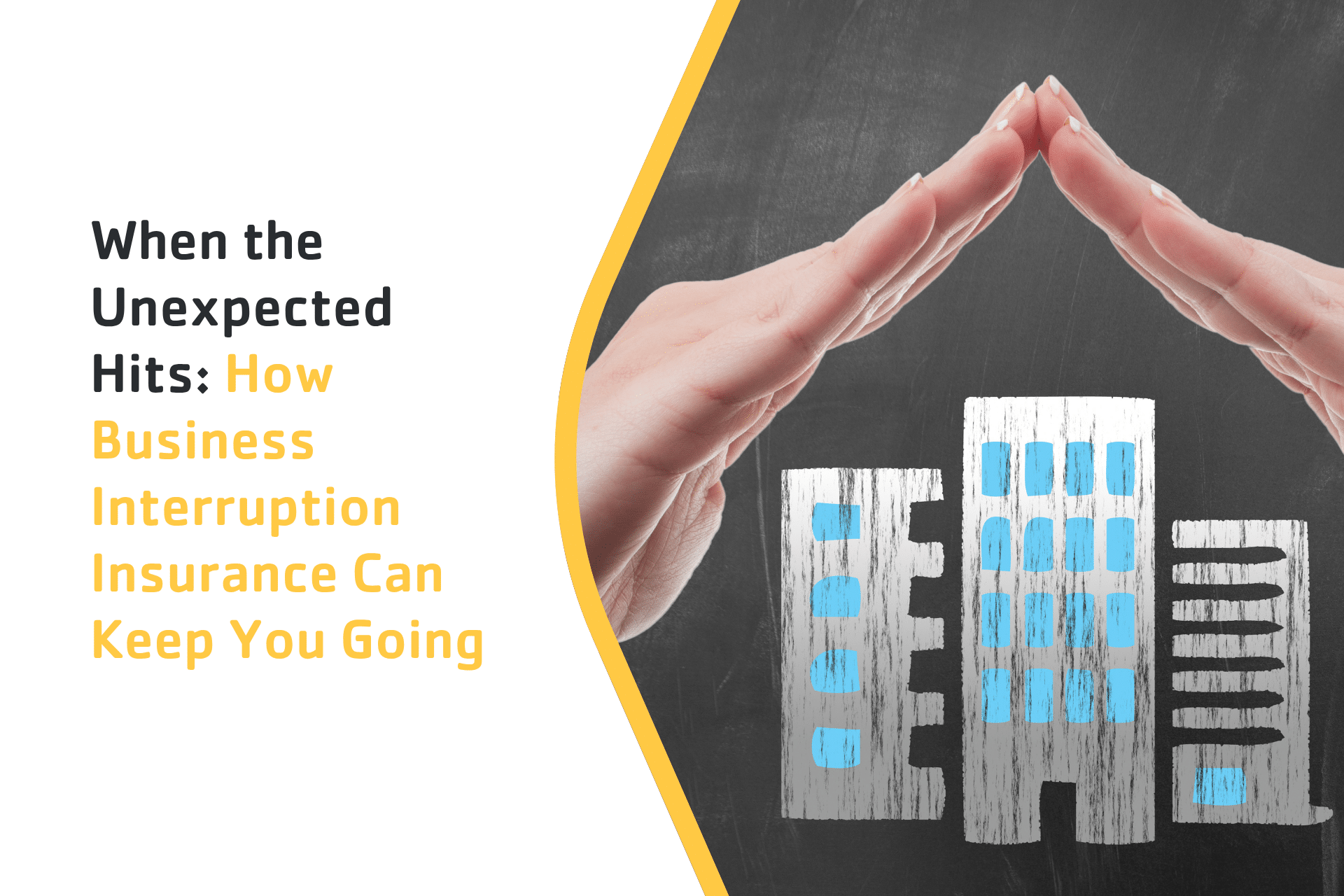No matter how well you plan unexpected disruptions can strike, whether it’s a fire, flood, storm or a key supplier shutting down. As highlighted during the 2021 AIDR panel discussion, combined disruptions are now the new normal, with events like drought, bushfires and extreme weather occurring more frequently and often overlapping.
The real question is: how long would it take your business to get back on its feet and how much would it cost in the meantime?
That’s where Business Interruption insurance comes in. It’s designed to safeguard your cash flow, helping you pay essential expenses and keep your business alive, even when operations grind to a halt.
Table of Contents
- What Is Business Interruption Insurance?
- Who Needs Business Interruption Cover?
- Business Interruption Insurance: What’s Covered?
- Business Interruption Insurance: What’s Not Covered?
- What’s Needed for a Business Interruption Insurance Claim?
- Carbon Case Study: Business Interruption Insurance Client
- Ready To Be Covered When It Counts?
What Is Business Interruption Insurance?
Business Interruption insurance (BI) covers loss of income and extra costs when your business is unable to operate due to a covered event, like property damage, fire or a government-mandated shutdown.
It helps you:
- Replace lost turnover
- Cover ongoing operating expenses (wages, rent, electricity)
- Fund relocation or temporary premises
- Pay for training costs if you need to onboard new systems or equipment
Who Needs Business Interruption Cover?
If your business would take a financial hit from being closed for days or even weeks, Business Interruption insurance isn’t optional; it’s essential.
This type of cover is especially critical for industries that rely on physical locations, equipment or consistent customer access to generate income. Some of the most affected industries include:
- Hospitality: Cafés, restaurants, food trucks, pubs, hotels, catering services
- Retail: Boutiques, supermarkets, florists, market stalls
- Trades & Manufacturing: Machinery operators, workshops, fabrication and warehousing
- Health & Professional Services: Dentists, physios, GPs, salons, vets
- Office-based Operations: Law firms, accountants, design studios
These businesses typically have fixed overheads, like wages, rent and supplier payments, that don’t stop even when revenue does. Business Interruption insurance gives them the breathing room to survive, recover and rebuild.
Research shows that 40% of small businesses don’t reopen after a major disaster. And if a business can’t reopen within five days, 90% fail within two years. Business Interruption insurance could be the difference between bouncing back or closing your doors for good.
Business Interruption Insurance: What’s Covered?
Your policy may include:
- Lost income: From downtime caused by insured events like fire or theft.
- Ongoing costs: Rent, loan payments, utilities, wages.
- Additional expenses: Temporary relocation, machinery training or outsourcing work.
- Flow-on impacts: If a key supplier’s premises are damaged and it affects your operations.
Business Interruption Insurance: What’s Not Covered?
Business Interruption policies don’t cover everything. Common exclusions include:
- Undocumented income.
- Pandemics or communicable diseases (unless specifically included).
- Property damage (covered separately under commercial property insurance).
- Utility costs when operations have stopped.
- Labour strikes or law changes.
Be sure to read your Product Disclosure Statement (PDS) or speak with an insurance broker to understand exactly what your policy includes.
What’s Needed for a Business Interruption Insurance Claim?
If disaster hits, your insurer will likely ask for:
- Historical profit & loss statements
- BAS Lodgments
- Payroll records
- Lease or franchise agreements
- Details of the event and government orders (if applicable)
- Any government support received
The more prepared you are, the smoother your claims process will be.
Carbon Case Study: Business Interruption Insurance Client
A restaurant was forced to close for 10 days after water entered the building following a storm event and caused water damage. With no sales coming in and bills still due, the owner faced serious financial stress.
But thanks to their Business Interruption insurance, they received payments to cover lost income, ongoing rent and staff wages. They were also reimbursed for costs of inspecting the damaged equipment and some other Increased Costs of Working expenses.
While the loss of stock and damage was relatively minimal (total claim cost for these items was less than $6,000), they received payment of over $25,800 in regard to their Business Interruption loss.
In particular, the ability to ensure staff were retained enabled them to quickly reopen once repairs were complete. Without this guarantee that the staff were going to continue to be paid their average weekly wage, they may have lost several experienced staff members to competitors.
Without this cover, the business would have experienced a significant financial loss. Instead, they reopened stronger and more resilient.
Why Business Resilience Matters: The Bigger Picture
Business Interruption insurance doesn’t just protect income, it supports entire communities. Businesses are the economic and social heartbeat of their communities. They:
- Employ local people
- Provide goods and services
- Support local charities
- Volunteer for emergency service roles
When businesses close after a disaster, the ripple effects are massive:
- No jobs for staff
- Loss of vital services
- Community wellbeing suffers
- Local industry and supply chains decline
By securing BI cover, you’re doing more than protecting your business, you’re contributing to shared responsibility for economic stability and community recovery.
Ready To Be Covered When It Counts?
Most small businesses insure their buildings, stock and equipment but forget to protect the income that keeps everything running. Business Interruption insurance bridges that gap, helping you stay afloat when the unexpected hits.
Whether it’s a fire, flood or supplier crisis, the financial fallout can be severe but it doesn’t have to be.
At Carbon Insurance Brokers, we take the time to understand your business inside and out. That way, we can recommend a cover that genuinely supports your operations, industry and goals.
We’re here to help you stay resilient, confident and in control, no matter what comes your way. Let’s make sure you’re covered when it matters most. Get in touch with our team today.






















